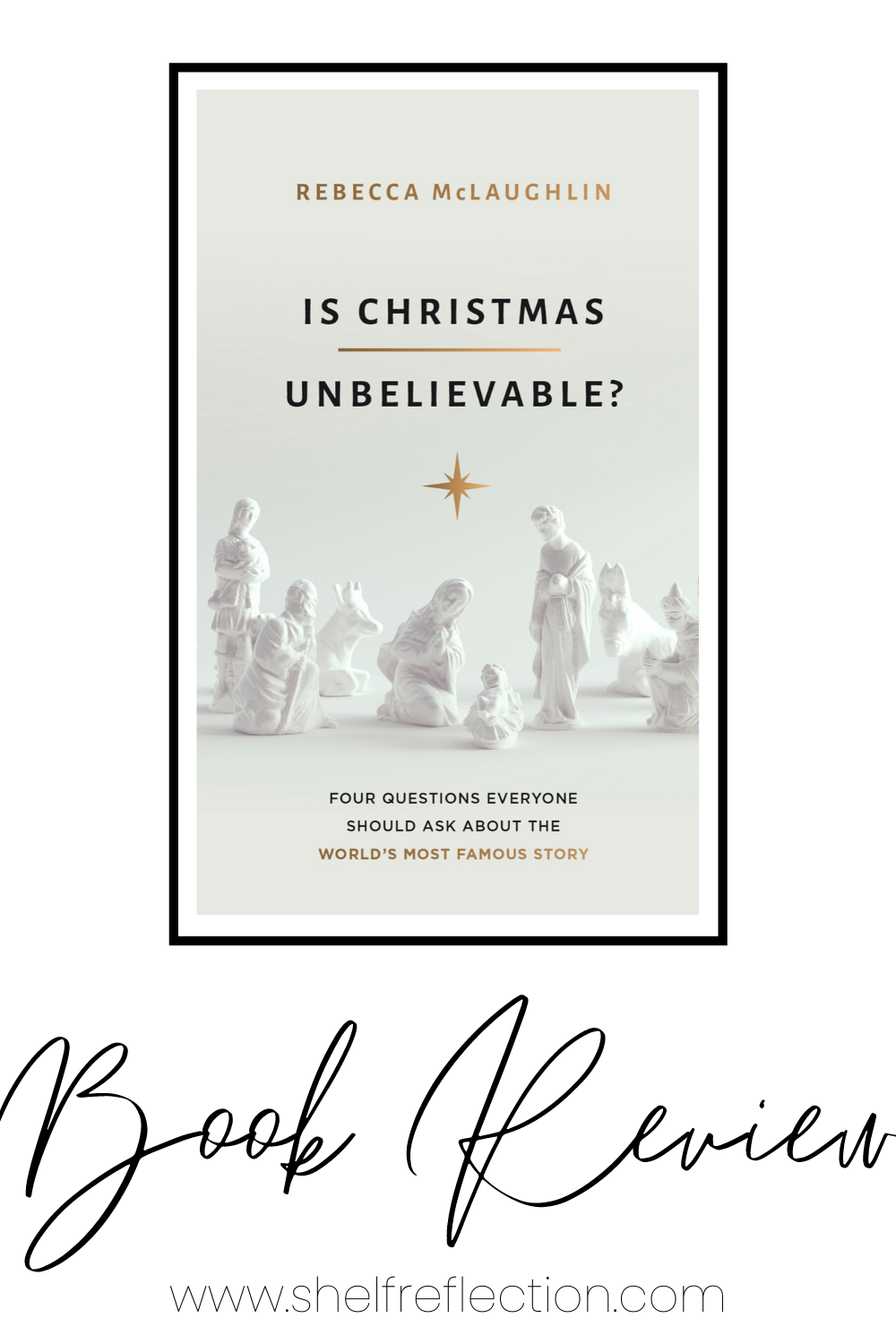Is Christmas Unbelievable?
Is Christmas Unbelievable?: Four Questions Everyone Should Ask About the World’s Most Famous Story
By: Rebecca McLaughlin
We all know the Christmas story.
But do we believe the Christmas story?
Rebecca McLaughlin, author of Confronting Christianity: 12 Hard Questions for the World’s Largest Religion, has written this super short (64 page) book outlining briefly, yet convincingly, why we can believe the Christmas story.
“I hope this little book will help you think a little more about the man who landed in our world 2,000 years ago, I hope it will persuade you that he’s more important than you thought. And I hope it will make you wonder if his unbelievable claim that he’d come to save the world… might just be true.”
The four questions mentioned in the subtitle of this book are these:
Was Jesus even a real person?
Can we take the Gospels seriously?
How can you believe in a virgin birth?
Why does it matter?
The logic follows:
If the main character of the Christmas story is Jesus, then first of all— did he really exist? The answer to that one is easy— yes. She gives three extra-biblical historical sources that name Jesus and confirm claims made by the gospel accounts.
If Jesus is real then can we trust what was written about him? She talks here about eyewitness accounts and pokes holes in the theory that the authors of the Gospels would have made all of it up.
So then if we can trust that the authors were telling the truth, then we must accept a virgin birth? Yes. Here she poses that if we believe in a God who created the universe then it would not be irrational to believe in a virgin birth. So we must consider the origins of the universe.
I like the quote she includes from Australian author, Glen Scrivener: “Christians believe in the virgin birth of Jesus. Atheists believe in the virgin birth of the universe. Choose your miracle.”
And at this point, if we are thinking through all of this we must ask- why does it matter? Here she talks about what we lose if we remove God from our moral structures that undoubtedly are influenced from biblical principles.
Consider why we believe universal human rights exist— where do those come from? (She talks about this further in her book ‘The Secular Creed: Engaging Five Contemporary Claims.’)
Does your life have worth and meaning? It matters because life matters and we should know why.
And of course she ends with the message of the gospel. Because the reality is, if Jesus is real, if the Bible is trustworthy, and if Jesus, fully God and fully man, truly died and rose again, then we must believe all that the Bible tells us.
Which is bad news. And good news.
The Bible tells us that we are sinners deserving of death who cannot save ourselves. We are doomed. Yet there is a path to redemption and that path is in Christ alone by grace alone through faith alone.
We therefore have two choices: Either we accept this gift of salvation and choose to trust and follow Christ. Or we reject it.
That’s why considering whether the Christmas story is believable matters. Because if it is true, your choice is a choice of life or death.
That sounds dramatic. But it’s the truth.
This is a great, concise, sufficient resource to consider these questions but it is by no means exhaustive. Her first book I linked may provide more depth to questions you have about Christianity.
Don’t let the familiarity of the Christmas story numb you to the reality of the Christmas story.
Do you believe it?
[Spoiler Alert: This spring she is releasing a follow-up book called ‘Is Easter Unbelievable?’ where she will go more in-depth on the resurrection than she did in this book]
Share this book review to your social media!


